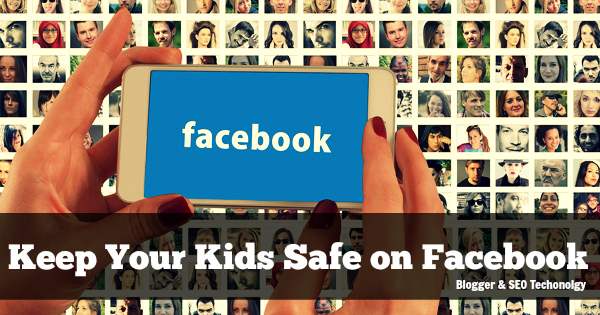Description: Easy ways to keep your kids safe on Facebook. Facebook security tips to check your kid's Facebook activities.
Launched in 2004, Facebook took the world by storm. Currently Facebook has more than 900 million online active users and it’s filled with people from different countries, cultures and ethnicities. If your child is on Facebook, a portal that connects millions of people together than it’s your responsibility to keep an eye on them, make sure they don’t get involved in something dangerous and talk to strangers.
 |
| Save your Kids on Facebook |
Facebook Securities to Safe Your Kids on Facebook
Facebook has caused many diverse psychological effects in children, from envy and criticism to increased stress. In the past year two teenagers; Megan Meier and Phoebe Prince committed suicide because of Facebook bullying so it’s quite important that you keep your kids safe from all the evils prevalent on Facebook. But instead of resorting to parental monitoring software right off the bat, here’s what you can do to safe your kids on Facebook.Make Sure Your Child Is Not Underage
Facebook requires all users to be over 13 to sign up for an account but in many cases kids end up making Facebook accounts to connect with friends and play games. Even though it seems harmless and easier to succumb to your child’s wishes, it still is harmful. The internet is prowling with child abusers and people who have nothing better to do then violate the privacy and innocence of young kids so even if your kid begs you to sign them up on Facebook, answer them with a stern no. In worst cases make a Facebook account for yourself and let your child use it to connect with friends and play games, obviously under your supervision.Know Your Child’s Account Details
You can create a Facebook account for your child and keep the login details to yourself. Login to child's account once in a week to be sure everything is fine and no strangers request or messages are there. Keep a random check on who your child’s friends are or what kind of inbox messages do they get. This will help you keep your child safe from prowlers and unknown people who send friendship requests. Make sure they do not accept any software either since it may be software for computer monitoring.
Add Your Child as a Friend
Although this might be embarrassing for your child having their mummy or daddy as their Facebook friend but again it’s a preliminary to security and safe-keeping. Browse through your teen’s pictures and wall-posts to make sure nobody’s bullying them or criticizing them. Also keeping a check on your child’s friend list and their wall posts will help you determine the nature of your child’s friends.Modify Your Child’s Settings
Considering Facebook is a social networking portal. It still has quite high privacy settings and to safeguard your child you need to modify them and secure them as much as possible. Click on the lock symbol in the upper right corner near drop down menu, you can change the settings -
- Who can see my stuff?
- Who can contact me?
Firstly, change your child’s privacy settings and turn off the search filter, this would make your child’s Facebook profile invisible to anyone searching for them. This way your child would be able to search his/her friends and add everyone he knows hence eliminating the risk of talking to strangers or even coming into contact with them. Go to Privacy setting page, you can change the settings under -
- Who can look you up using the email address you provided?
- Who can look you up using the phone number you provided?
Make sure your child’s photo albums and private information including status updates and wall posts are secured to “Friends Only”. External access to pictures and personal information may be harmful to your child’s safety.
You should also use the following privacy to keep your kids safe on Facebook.
Talk to your child
The best way to keep your child safe is to talk to them and make them understand the seriousness of privacy and security. Make sure that they know who to add as friends on Facebook and who to talk to. If you’ve taught your child well and given them the basic understanding of what’s right and wrong then you don’t need to keep such a deep insight check for your child.











